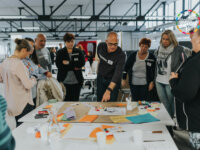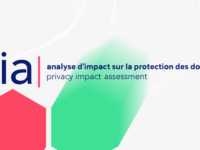There are two projects to co-build the relationship change between administration and farmers, organised by the group “Les IdéaCteurs” :
- “la parole aux jeunes” an innovative form of debate with 80 technical students to become farmers
- a creative session “pour simplifier la vie des agriculteurs” organised in june 2018, with 40 people (half of farmers, half of public officers) which allowed, in a very constructive climate, to generate around 20 ideas about 3 possible axes of…
Innovation Tag: Design
The Lab is an all-of-government neutral space enabling agencies to collaboratively innovate to make it easier for people to access government services. It's a design & development lab to experiment, drive and enable the systemic change of government for the benefit of society. We are providing a way to direct public funding to systemic improvements, horizontal efforts around shared goals, capability uplift, high value reusable components and actionable innovation for all participating agencies.
The Government of Slovenia has developed a new approach to preparing government services and public policies. Through specially designed workshops with a 360° approach to different stakeholders, these so-called ˝Policy Jams˝ aim to develop citizen-centred policy solutions. Based on systems theories and service design principles they open up the discussion space, while gearing participants toward finding viable innovative solutions.
Many years of Australian debate and public division around same sex marriage culminated in a single, nation-wide postal survey. The Australian Bureau of Statistics was given only 99 days to prepare, conduct and release the results of a survey of Australia’s 16 million enrolled voters. An amazing 80% of citizens participated in this voluntary survey, enabled by innovative project management and customer-centric service delivery. The project was delivered for 2/3 of its budget, a $40m saving.
“Future Ready” is a project which develops young women and men computer science and entrepreneurship skills. Future Ready enables youth to develop technology solutions that addresses societal challenges and contribute to the growth of the national economy. Overall, the project bridges the gap between public education and job market needs and creating entrepreneurial opportunities for them.
Paseo Bandera is a street in the heart of Santiago that for 5 years was closed for work on the construction of the Santiago new subway line. Because of the closure, it was used for parking and passage of cars all day, being one of the worst streets in terms of quality in the center of the capital. In 2017, it was authorized for 10 months to be pedestrian. With artistic and technological innovation was possible to improve the quality of public space, accessibility, environment and mobility.
Social innovations offer many new solutions to today’s challenges. Yet, they encounter difficulties in becoming known. Social innovation Crossroad offers a precise vision of social innovations in France. To do so, a search engine gives access to 5000 projects already capitalized by 50 actors. Financers, coaches, academics and projects holders now get reliable information, automatically up-to-date and enter a new community. Small as well as big projects are highlighted the same way.
A-Lab was conceived to break down barriers to renewable energy in Australia. A-Lab draws on a network of people with a wide range of expertise and passion to make systemic change in the electricity sector. A-Lab is a space for these people to design and deliver solutions to the most complex challenges of integrating renewable grids, combine their respective strengths and build momentum for change.
Over a third of U.S. federal employees are eligible to retire in the next five years, yet only 6% of employees are under 30—a pressing issue given the rate of innovation. Piloted as an effort between agencies and a student-led nonprofit, the Civic Digital Fellowship recruits the next generation of technologists—students and recent grads—pairing them with in-need agencies. It has scaled to six agencies, and is an attractive on-ramp for technical students into public service.
The General Data Protection Regulation (GDPR) requires that organisations carry outData Protection Impact Assessments (DPIA or PIA) prior to starting a likely risky processing operation. The PIA tool is a free and open source software tool, available as a standalone and “server” version. It helps organisations to conduct PIAs by guiding them through the process step-by-step, and thus to demonstrate compliance with the GDPR.





